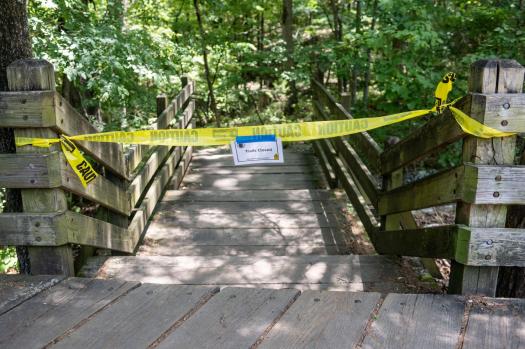By MEAD GRUVER and COLLEEN SLEVIN
DENVER (AP) According to officials, the husband of Colorado lady Suzanne Morphew, whose remains were found more than three years after she was reported missing on Mother’s Day 2020, was arrested once more on Friday on a charge of first-degree murder.
Related Articles
-
Karen Read jury foreman breaks silence: Cost, shoddy police work, no justice for victim
-
Air traffic controllers in Florida briefly lost radar after fiber optic line was cut
-
R. Kelly claims prison officials plotted to kill him. Judge denies his release
-
Man whose parents were kidnapped after $245M Bitcoin theft has pleaded guilty to federal charges
-
Verdict against a pardoned Capitol rioter is only a partial victory for a police officer s widow
Three years after the original case was abandoned because of prosecution problems with the evidence, Barry Morphew was arrested in Arizona on Friday after a Colorado grand jury returned an indictment on Wednesday.
Court filings state that he was given a $3 million cash-only bond. In a statement, the district attorney’s office stated that it is working to return him to Colorado.
Although Suzanne Morphew’s cause of death was not listed in the 2024 autopsy report, it was determined to be homicide. According to the report, a medication combination intended to tranquilize wildlife was discovered in one of her bones, but there was no sign of damage in her remains.
Investigators discovered a tranquilizer gun and related items in the Morphews residence.
Since his wife vanished, Barry Morphew has insisted on his innocence, and his lawyer David Beller denounced the new indictment.
Beller stated in a statement, “Once more, the government lets their preconceived conclusion guide their evidence search.” Barry insists he is innocent. Neither has the case altered, nor will the result.
In May 2021, Morphew was first charged with murder; however, prosecutors dropped the case the following year, right before his trial.
For consistently breaking the regulations for turning over evidence in Morphew’s favor, prosecutors were prohibited by a judge from calling important witnesses. Among them was the DNA of an unidentified man discovered in Suzanne Morphew’s SUV. Prosecutors claimed at the time that they needed more time to locate her body.
Although the judge decided to discontinue the case against Morphew, prosecutors were still given the opportunity to charge him in the future.
Barry Morphew accused county officials of breaching his constitutional rights and filed a $15 million lawsuit against them. Additionally, his attorneys filed a complaint, requesting that the prosecutors face consequences for allegedly purposefully hiding evidence.
Iris Eytan, who used to represent Morphew in 2021 but is no longer with him, claimed that the prosecution mishandled the case.
Eytan told The Associated Press on Friday that he was a loving spouse in addition to being a loving parent.
On Mother’s Day 2020, Suzanne Morphew, 49, a mother of two girls who resided close to the small town of Salida, was reported missing, sparking the mystery surrounding her. Although Suzanne Morphew’s mountain bike and helmet were discovered in different locations near her house, police surmised that the bike had been intentionally tossed into a ravine since there were no signs of a collision. Barry Morphew sent a video to Facebook a week after she vanished, begging for her safe return.
He said, “I will do whatever it takes to get you back, no questions asked, however much they want.”
Barry Morphew’s wife insisted on leaving him, according to the arrest affidavit outlining investigators’ case against him when he was first charged. Later, as new information became available, he modified his claims.
An enthusiastic hunter, Morphew did not originally disclose to police that he drove toward the location where his wife’s bicycle helmet was finally discovered on Mother’s Day as he departed for work. The initial arrest document later stated that he went that way because he had spotted an elk cross the road.
In September 2023, while conducting an unrelated search close to the small town of Moffat in southern Colorado, some 40 miles south of the Morphews’ residence, Colorado Bureau of Investigation investigators discovered the skeletal remains of Suzanne Morphew in a shallow burial.
According to the affidavit, the majority of Suzanne Morphew’s bones were found and several of them were severely bleached.
Investigators discovered clothes that resembled those used by cyclists, and they also removed a port that allowed Morphew to receive medication for follicular lymphoma, a form of blood cancer. According to the affidavit, a forensic anthropologist speculated that the person deteriorated somewhere else based on the condition of the remains and clothing.
According to toxicological tests, the bones had all three of the medications in BAM, a sedative used for wildlife. According to the affidavit, the remains would not have been contaminated with BAM after death because a metabolite for one of the medications, butorphanol, was found.
Butorphanol, azaperone, and medetomidine poisoning led the coroner’s office to conclude that the cause of death was homicide by undetermined means.
Shortly before the Morphews relocated to Colorado in 2018, Barry Morphew got and completed multiple prescriptions for BAM while residing in Indiana. According to the indictment, Barry Morphew, an Indiana deer farmer, admitted to investigators that he tranquilized deer in Indiana and Colorado with BAM.
According to documents, between 2017 and 2020, only Colorado Parks and Wildlife and National Park Service officials—not private individuals or companies—had acquired BAM in the vicinity of their Colorado residence. BAM materials were not reported missing by any government officials.
According to the indictment, the prescription records ultimately demonstrate that, at the time of Suzanne Morphew’s disappearance, only Barry Morphew, a private citizen, had access to BAM throughout the whole state.
From Cheyenne, Wyoming, Gruver reported. Contributions were made by Seattle-based Associated Press reporter Jaimie Ding.












